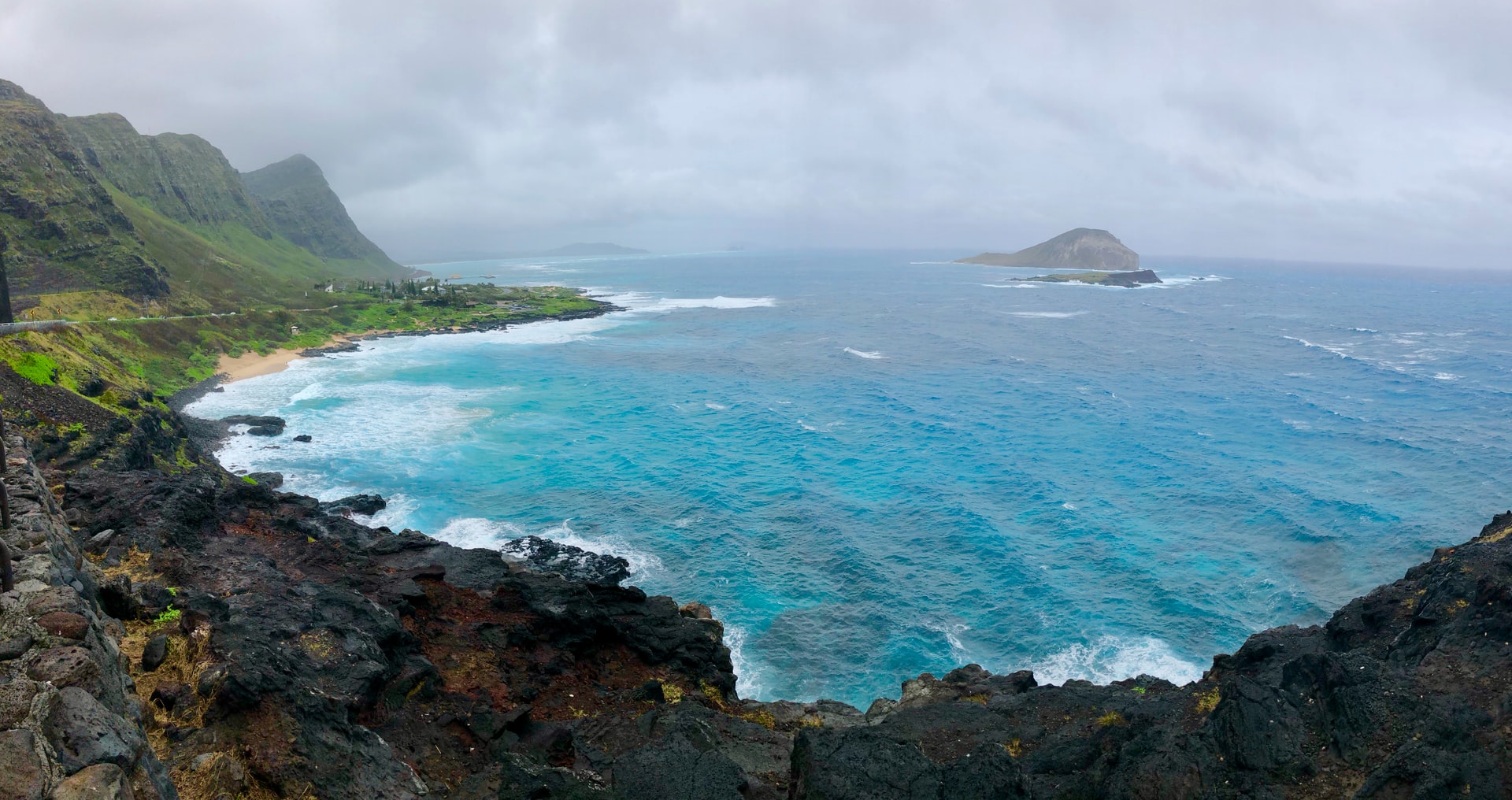News
Pacific islands: an unexpected new dimension to power struggles between US and China

FILE: The vibrant blue Pacific as viewed from the Makapu’u area (Photo: Karson/Unsplash)
The island states of the Pacific – from large Papua New Guinea to the smaller island state of Tuvalu – find themselves in a newly influential position as the west and China battle for their strategic backing.
Their negotiating strength may give them more power to attract international aid to tackle the biggest threat to the region – climate change.
Failing to keep global warming to below a 1.5°C increase is likely to mean the Pacific island nations experience more frequent climate and weather-induced disasters, and increased inundation of atolls, islands and homes from rising seas.
For the past 15-20 years, China has increased its engagement in the Pacific region. It has now secured considerable clout and allegiance in the large ocean states of the region including Fiji, Tonga, Samoa, Vanuatu, and more recently Kiribati and the Solomon Islands.
Pacific island countries have welcomed China’s infrastructure initiatives and concessional loans, often on terms which are seen as more favourable than those historically provided by other countries. Unlike the US and Australia, or international bodies including the World Bank and Asian Development Bank, Beijing usually does not tie its aid to economic and governance reforms.
After years of being regarded as a global backwater where assistance has been determined by the agendas of donors, the tables are now turning. This revitalised focus on the region has advantages for it. Both Australia and New Zealand have recently changed their approach to the region.
The newly elected Australian government, already the largest aid donor in the region, has promised to increase its contribution. India and Japan have also indicated that they will increase engagement in the region. The US is similarly reviewing its position.
Some Pacific states – Palau, Marshall Islands, Federated States of Micronesia – are seeking to renegotiate expiring compacts of free association, which make the United States responsible for their defence and external security while providing financial assistance for development. The political situation and the US’s renewed interest in this strategic region provides greater power for the islands to get improved deals.
Concern that negotiations had stalled in early 2022, led to the appointment of a special presidential envoy for compact negotiations. But now, if islands decide that the US offer isn’t sufficiently attractive, there are others, such as China, who could step in. There are similar decisions for those Pacific island states, the Cook Islands and Niue, that traditionally have had a close association with New Zealand.
New relationships
Over the years, Pacific island governments have welcomed assistance including humanitarian relief, infrastructure projects, support for health systems and education, scholarships for young people or access to technology. Willie Jimmy, a former Vanuatu finance minister and ambassador to China, said in an interview with Al Jazeera that China’s investment in the region provided aid for projects that the west was not covering. “Other donors don’t pick up any projects not in accordance with their foreign policy aid objectives.” Former foreign minister of Vanuatu, Ralph Regenvanu, was also supportive of China’s backing for the islands, according to the Independent Australia website: “They don’t presume like Australia. They can be just as forceful, but Australia has got the gold medal for that one.”
Pacific island states do not see themselves as pawns in an international chess game. They demand respect for their own sovereignty – as shown by the reaction of the Solomon Islands to criticism over its recent security agreement with China. According to the Reuters news agency, former prime minister of Samoa, Tuilaepa Sailele Malielegaoi, said of the suggestion that Pacific island states had walked into debt traps: “Some might say there is a patronising nuance in believing Pacific nations did not know what they were doing.”
Strength in numbers
Pacific Islands countries are working together through their regional organisations such as the Pacific Islands Forum, the region’s economic policy body, to give themselves more negotiating power. Dame Meg Taylor, former secretary-general of the forum, was reported by the Pacific Island Times website, saying: “If we divide into our sub-regions, and then get played off by geostrategic interests, our own interests as a collective will be severely undermined.”
In early 2022, China and Solomon Islands signed a new security agreement, under which it is believed that China will provide police, security and military personnel to assist the Solomon Islands government. This provoked considerable alarm about China’s increasing influence among longstanding aid and assistance donors. Pacific island state leaders were concerned about regional security agreements being undermined.
Not all advances by China are accepted, however. China’s attempts to secure a ten-country agreement that would cover free trade, police cooperation and disaster resilience were rejected.
Tackling climate change
As countries on the frontline of climate change, but having contributed the least towards its causes, Pacific island nations have been calling for global action for decades.
On the international stage, the island states worked together on the Paris Agreement and in influencing dialogue at COP26. They have also expressed disappointment at its outcome, particularly the lack of climate change damage compensation.
The Pacific state of Vanuatu will now ask the United Nations General Assembly to refer the question of states’ duties to protect humans against the adverse effects of climate change to the International Court of Justice for its opinion. If successful, it is hoped this opinion would inform a stronger, positive international response to support vulnerable, developing countries
The current geo-strategic importance of the region seems unlikely to diminish any time soon. Pacific countries may be able to capitalise on this and exert extra influence to get the world to take more immediate action on what they see as the biggest security threat: climate change.![]()
Sue Farran, Reader of Law, Newcastle University
This article is republished from The Conversation under a Creative Commons license. Read the original article.





















